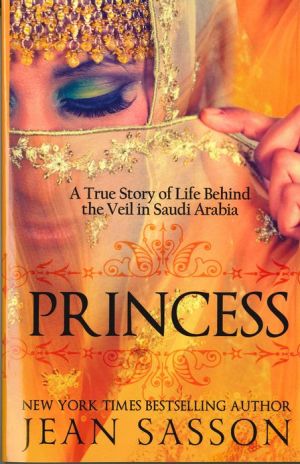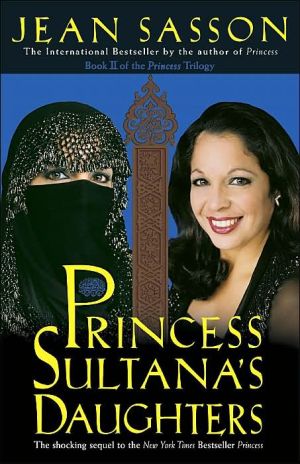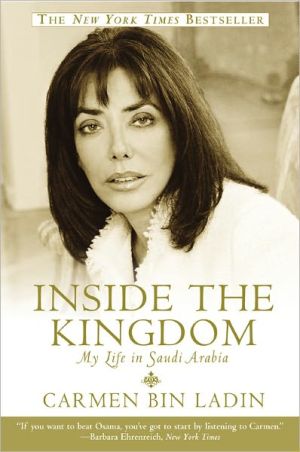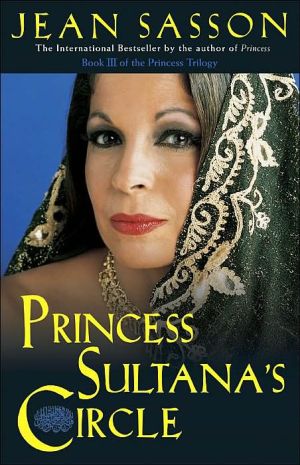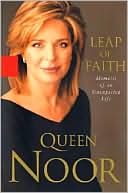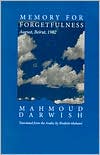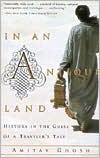The Prince: The Secret Story of the World's Most Intriguing Royal, Prince Bandar bin Sultan
A riveting portrait of one of the most enigmatic yet influential powerbrokers in America–Prince Bandar bin Sultan bin Abdulaziz Al–Saud, the Saudi Arabian Ambassador to the United States from 1983–2005. At a time when understanding our friends is as important as understanding our enemies, Prince Bandar bin Sultan remains one America's most enigmatic powerbrokers. As the illegitimate son of a Saudi prince and a servant girl, Prince Bandar overcame his unrecognized beginnings to rise as one of...
Search in google:
A riveting portrait of one of the most enigmatic yet influential powerbrokers in America - Prince Bandar bin Sultan bin Abdul Aziz Al-Saud, the Saudi Arabian Ambassador to the United States from 1983 to 2005 For the last two and a half decades, the United States and Saudi Arabia have had a very special relationship - through war, oil crises, and global terrorism. At a time when understanding our friends is as important as knowing our enemies, understanding Prince Bandar bin Sultan may be the key to figuring out the Saudis. As the illegitimate son of a Saudi prince and a servant girl, Prince Bandar overcame his unrecognized beginnings to rise through the ranks of the Royal Saudi Air Force. Through his work with President Carter on the sale of F-15s to Saudi Arabia and his vital behind-the-scenes help in getting the Panama Canal Treaty through Congress, Bandar became one of Saudi Arabia s brightest diplomatic stars - leading to his appointment as the Ambassador to the United States. As Ambassador, Bandar worked with President Reagan and CIA Director Bill Casey to win the Cold War with Saudi petrodollars. Seemingly in the thick of some of the most important world events of the last twenty-five years, Bandar played a key role in the Iran-Contra affair; convinced President Gorbachev to withdraw the Soviet military from Afghanistan; and negotiated an end to the Iran-Iraq war among others. A Machiavellian manipulator and a master tactician on the global chessboard, Bandar has had unmatched access to the Oval Office. George H. W. Bush took The Prince and his family fishing; Nancy Reagan used him to convey messages to her husband s Cabinet; Colin Powell would drop by to play racquetball. During the Gulf War, Prince Bandar even became a de facto member of the National Security Council. In this revealing biography, William Simpson pulls back the curtain for the first time on the fascinating and startling life of a man of contradictions - equally at home in the royal palace in Riyadh as on the ski slopes of Aspen or playing hardball politics with international heads of state; a super-wealthy playboy yet a devoted family man; an expert in subterfuge and misdirection, yet a straight talker trusted the world over; a man of peace and yet the biggest arms dealer in the world - who emerged throughout the 1980s and 90s as one of the driving forces behind American foreign policy. The Prince is sure to become the definitive work on the Machiavellian Saudi behind the White House. Kirkus Reviews A partial-in both senses-life of the Saudi diplomat and powerbroker dubbed "Bandar Bush."If you knew what we were really doing for America, Prince Bandar once proclaimed, "you wouldn't just give us AWACS; you would give us nuclear weapons." Among the things he's done on our behalf: pushed for war with Saddam Hussein following the invasion of Kuwait; laundered money in Iran-Contra; engineered the ouster of several officials in the Reagan administration; brokered side deals with China that nearly plunged the Middle East into an apocalyptic war. All that, by fellow fighter-pilot trainee Simpson's account, can be written off to Machiavellian vicissitudes; otherwise, Bandar is a good guy, the kind of guy Thatcher could do business with and inside whose soul Dubya could peer approvingly. An illegitimate scion of the royal family brought in from the cold, Bandar helped formulate the Saudi foreign policy that can be simplified thus: "The Communists are atheists; they don't believe in religion and we are fighting them for religious reasons." Thus the ethic of Osama bin Laden, another royal outsider, about whom there is not much newsworthy in these pages; indeed, the better and best part of Simpson's narrative takes place 20 and more years ago. Simpson takes it as given that the U.S. government is controlled by the "Jewish-Israeli lobby," determined to keep Saudi Arabia from taking its proper place in the world (by, one supposes, denying the regime nuclear weapons and long-range missiles). Just so, the neoconservatives in the second Bush administration are a "cabal" that "consistently thwarted efforts to achieve a just settlement to the Palestinian problem." As such, be warned that this unofficialbiography of an undoubtedly interesting fellow bears official stamps. Those interested in the Bush part of the Bandar Bush story might want to have another look at Fahrenheit 9/11. Simpson's revelations, however, have use for readers seeking a view of how Washington really works.
The Prince\ The Secret Story of the World's Most Intriguing Royal, Prince Bandar bin Sultan \ \ By William Simpson \ Regan Books\ Copyright © 2006 William Simpson\ All right reserved.\ ISBN: 0-06-089986-7 \ \ \ Chapter One\ Who is Prince Bandar? \ "All men dream, but not equally. Those who dream by night in the dusty recesses of their minds wake in the day to find that it was vanity: but the dreamers of the day are dangerous men, for they may act their dream with open eyes, to make it possible." T. E. Lawrence, "The Seven Pillars of Wisdom"\ Fifty-seven years ago, inside a traditional Bedouin tent, a young servant girl gave birth to her only child, a boy. But for one detail, the birth of a child to a young mother of indifferent, even insignificant status, deep in the desert, would be of import to very few. That singular detail, however, was important, for the father of the infant boy was Prince Sultan bin Abdul Aziz Al-Saud, a member of the royal family and son of the founder of Saudi Arabia, King Abdul Aziz bin Abdul Rahman Al-Saud-known in the West as Ibn Saud.\ At the time, Saudi Arabia itself was still in its infancy, for not until 1932 did Ibn Saud unify the diverse tribal regions in the center of the Arabian peninsula, rename the country the Kingdom of Saudi Arabia, and name himself as its first king.\ The formation of modern Saudi Arabia did not come about easily. In the early nineteenth century, members of the Al-Saud tribe ruled Najd, a central and physically isolated region, whichincluded the holy cities of Mecca and Al Medina. In 1811, the Ottoman sultan asked Muhammad Ali, ruler of Egypt, then part of the Ottoman Empire, to depose Al-Saud. Ali sent two of his sons to invade Najd, and in 1818, his second son, Ibrahim Pasha, captured Dir'iyyah, the capital. Its ruler, Abdallah ibn Saud, was sent into exile, first to Cairo and then to Constantinople, where he was beheaded. With his death, so too died the first Saudi state.\ A second Saudi state emerged in 1824, when Turki bin Abdallah bin Saud bin Abdul Aziz bin Muhammad Al-Saud, ousted the Egyptians from Najd and established Riyadh as his capital. Although this second state prospered initially, internal disputes saw the leadership change hands within the family until Faisal bin Turki took charge in 1843. Under Ibn Turki's leadership, order prevailed. Yet his death in 1865 marked the return of disorder and strife. In 1891, the Ottoman Rashidi tribe defeated that of the Al-Saud, forcing its leader, Abdul Rahman-grandfather of the present King Abdullah and great grandfather of Prince Bandar-to flee into what is now Kuwait. He was exiled with his family, including his son Abdul Aziz. With Rahman's exile, the second Saudi state came to an end.\ Abdul Aziz, who would become known as Ibn Saud, spent the remainder of his childhood in Kuwait, where he attended the daily governing councils, majlis of the emir of Kuwait, from whom he learned about the wider world. Seeking to restore the kingdom to the Al-Saud, Abdul Aziz set out in 1901 with a small number of warriors intent on recapturing Riyadh. Luck and audacity favored him when, on the night of January 15, 1902, he scaled Riyadh's walls with only twenty men and laid in wait for the Rashidi governor, Ajlan. The following morning, Abdul Aziz and his raiding party attacked, killing Ajlan and launching a campaign that would ultimately give rise to the third Saudi state. Over the next thirty years, Ibn Saud would gradually seize control of each of the tribal regions. In 1932, the Kingdom of Saudi Arabia was born.\ Though born into the royal family of Ibn Saud, Bandar bin Sultan's future was far from certain. His mother was Khizaran, a dark-skinned sixteen-year-old commoner from the province of Asir, located at the southern end of Saudi Arabia. It was a desolate place of vast plains and salt marshes, hostile mountains, and deep ravines. Its seaports, however, had allowed centuries of interaction with both Yemen and the Horn of Africa.\ Though his father, Prince Sultan, was one of the Sudairi Seven, the seven sons of Ibn Saud and Princess Hussa bint Ahmed al-Sudairi, one of King Abdul Aziz's favored wives, the boy's birth was inauspicious. Bandar is now quite blunt about his place in the Saudi royal family, saying, "I was conceived out of wedlock and my mother was a concubine."\ Although his dark-skinned mother was but a servant in his father's household and they were unmarried, Islamic law protects illegitimate children if recognized by their father, and Bandar's father acknowledged the birth. "My father recognized the pregnancy of my mother before I was born," recounted Bandar. "That is the reason why I was born in King Abdul Aziz's tented camp in Taif. He personally, King Abdul Aziz, named me with four other kids." That naming by the king effectively established the boy's pedigree as royal. Yet there was still a separation-a distancing of the prince from the other sons born to Prince Sultan's many wives.\ The birth of a child to an Arab prince and a concubine, though perhaps romantic, was not without pathos. Bandar's mother had been a servant girl before becoming a concubine to the twenty-year-old Prince Sultan, who had been appointed governor of Riyadh in 1947. Bandar remembers, "My mother was not related to any tribal leader that would provide me with power, nor was she from a royal family." Having lived in the Asir Province of Saudi Arabia, which nestles across from Africa, Khizaran was darker skinned, a feature she passed on to her son Bandar, who is noticeably darker than his brothers. It has been a common misconception in the U.S. press that the prince's mother was African. Bandar often derives curious enjoyment from knowing the truth of a situation while the media speculates endlessly and wrongly about him, and he has made no attempt to explain the geographical background to his mother's heritage. He confessed, "I coyly let that stand for a long time, because as you know by now, I enjoy knowing something that the whole world is talking about mistakenly and I know that it is not true."\ (Continues...)\ \ \ \ \ Excerpted from The Prince by William Simpson Copyright © 2006 by William Simpson . Excerpted by permission.\ All rights reserved. No part of this excerpt may be reproduced or reprinted without permission in writing from the publisher.\ Excerpts are provided by Dial-A-Book Inc. solely for the personal use of visitors to this web site. \ \
Foreword Nelson Mandela ixForeword Baroness Margaret Thatcher xiA Note on Sources xiiiPrologue xvIntroduction 1Who Is Prince Bandar? 9Fighter Pilot Prince 33The Tip of the Iceberg 63The Years of Intrigue 95Bandar the Arms Dealer 133A New World Order 169The Gulf Explodes 187Peace in the Middle East 241The Invisible Ambassador 2719/11 Cataclysm 313Friends and the Traveling Court 341The Private Prince Bandar 373Bandar: The Enigma Revealed 403A New Life 429Acknowledgments 437Notes 441Index 469
\ Kirkus ReviewsA partial-in both senses-life of the Saudi diplomat and powerbroker dubbed "Bandar Bush."If you knew what we were really doing for America, Prince Bandar once proclaimed, "you wouldn't just give us AWACS; you would give us nuclear weapons." Among the things he's done on our behalf: pushed for war with Saddam Hussein following the invasion of Kuwait; laundered money in Iran-Contra; engineered the ouster of several officials in the Reagan administration; brokered side deals with China that nearly plunged the Middle East into an apocalyptic war. All that, by fellow fighter-pilot trainee Simpson's account, can be written off to Machiavellian vicissitudes; otherwise, Bandar is a good guy, the kind of guy Thatcher could do business with and inside whose soul Dubya could peer approvingly. An illegitimate scion of the royal family brought in from the cold, Bandar helped formulate the Saudi foreign policy that can be simplified thus: "The Communists are atheists; they don't believe in religion and we are fighting them for religious reasons." Thus the ethic of Osama bin Laden, another royal outsider, about whom there is not much newsworthy in these pages; indeed, the better and best part of Simpson's narrative takes place 20 and more years ago. Simpson takes it as given that the U.S. government is controlled by the "Jewish-Israeli lobby," determined to keep Saudi Arabia from taking its proper place in the world (by, one supposes, denying the regime nuclear weapons and long-range missiles). Just so, the neoconservatives in the second Bush administration are a "cabal" that "consistently thwarted efforts to achieve a just settlement to the Palestinian problem." As such, be warned that this unofficialbiography of an undoubtedly interesting fellow bears official stamps. Those interested in the Bush part of the Bandar Bush story might want to have another look at Fahrenheit 9/11. Simpson's revelations, however, have use for readers seeking a view of how Washington really works.\ \ \ \ \ Nelson Mandela"A man of principle, a diplomat of astonishing caliber, and one of the great peacemakers of our time."\ \ \ General"Flamboyant, dramatic, personable, smart, canny and probably manipulative."\ \ \ \ \ Mark Matthews"The perfect bridge between the reclusive Desert Kingdom and the anything-goes character of the United States."\ \ \ \ \ Henry Siegman"A refreshingly different diplomat—not-ideological, highly pragmatic."\ \ \ \ \ Martin Sieff"Highly recommended."\ \

